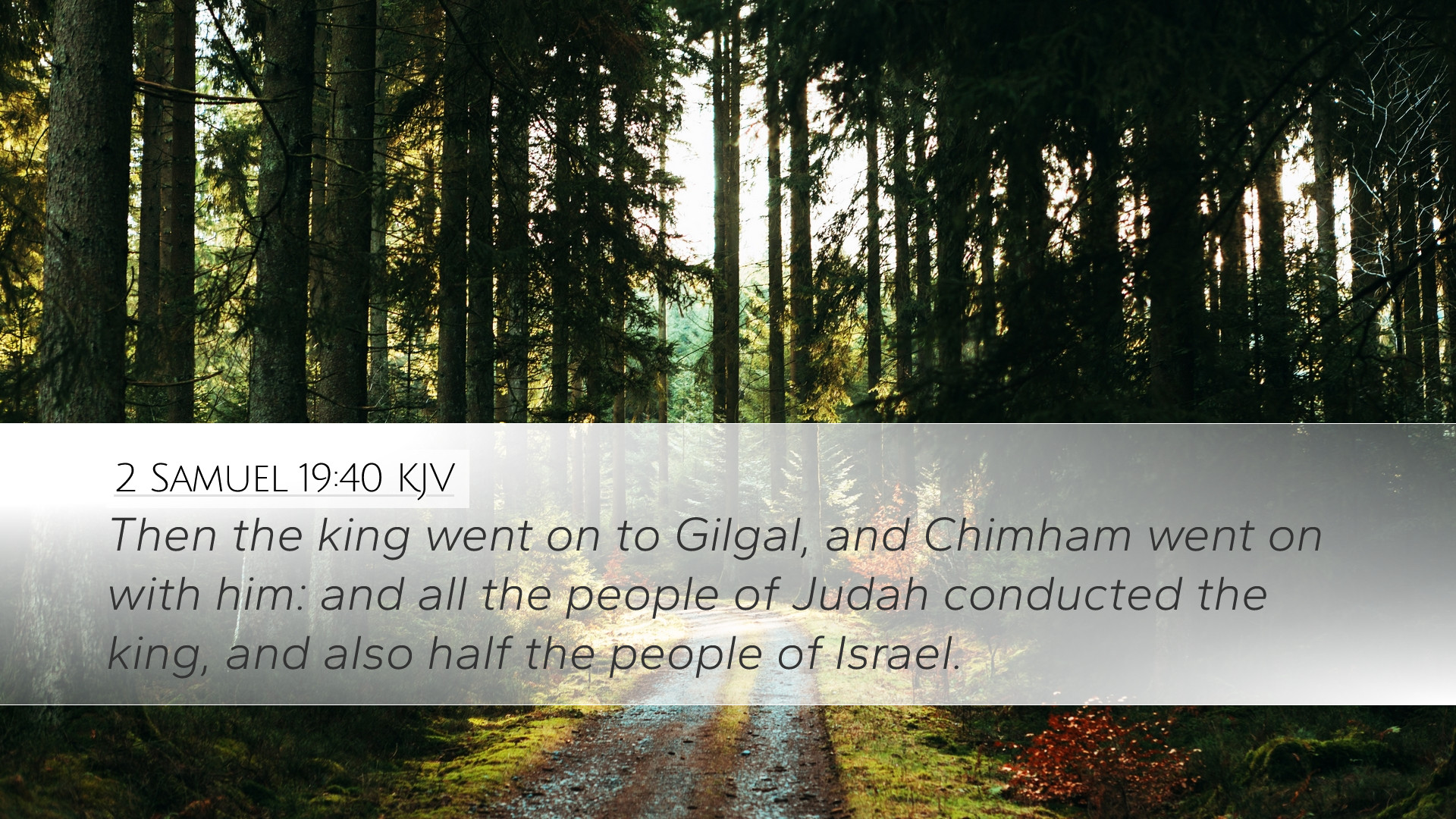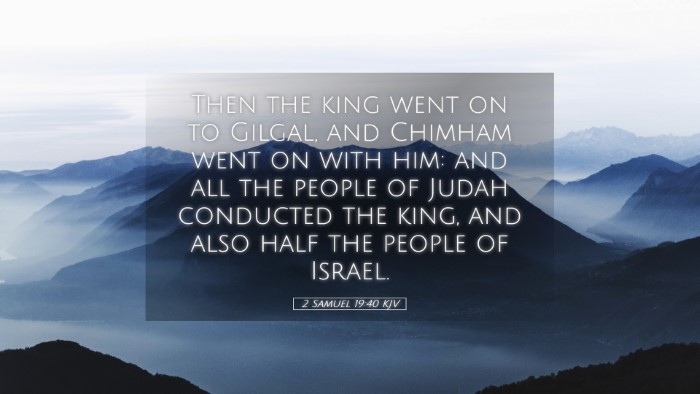Commentary on 2 Samuel 19:40
Verse Context: 2 Samuel 19:40 presents a significant moment in the narrative of David's kingship as he returns to Jerusalem after a period of conflict. This passage underscores both the political and personal dynamics at play during David's reign, particularly with regard to loyalty and authority.
1. Overview of 2 Samuel 19
The chapter recounts the events following Absalom's rebellion and subsequent death. David mourns for Absalom, showcasing his deep paternal grief. However, Joab’s rebuke of David emphasizes the need for David to return to his public role as king, which sets the stage for the journey back to Jerusalem, involving various figures who align themselves with David.
2. Analysis of 2 Samuel 19:40
The verse reads: “Then the king went on to Gilgal, and Kimham went on with him; and all the people of Judah conducted the king, and also half the people of Israel.” This moment acts as a transitional scene depicting David's re-establishment of authority.
2.1. Gilgal as a Significant Location
Matthew Henry notes that Gilgal was a pivotal place for the Israelites as it was their first camp after crossing the Jordan into the Promised Land. David’s arrival at Gilgal symbolizes a new beginning and the restoration of his rule. It recalls God’s faithfulness in Israel’s history and reminds the people of their covenantal relationship with Him.
2.2. Kimham’s Role
Kimham is mentioned briefly here but carries significant implications. Albert Barnes highlights Kimham as an expression of loyalty and support, illustrating the importance of community in leadership. This features prominently as David regains authority, not just through force, but also by earning the people’s trust once more.
2.3. The People’s Response
The phrase "all the people of Judah conducted the king" emphasizes the collective nature of support David receives upon his return. Adam Clarke expounds that this demonstrates the restoration of David's position, where the people rally to him not simply as a ruler but as a beloved leader. The unity showcased here is crucial for stability and governance in the tumultuous time following Absalom's rebellion.
3. Theological Implications
This passage serves as a profound reminder of leadership dynamics in the context of faith. Spiritual leaders are often called to rebuild and restore after periods of conflict or opposition. David’s journey reflects themes of repentance, restoration, and divine appointment.
- 3.1. Repentance and Leadership: David’s earlier actions led to chaos; thus, his mourning for Absalom signifies personal acknowledgment of loss and failure.
- 3.2. Restoration through Community: As the community comes together to support David, it illustrates the necessity of communal engagement in the healing process of both leaders and followers within the Church.
- 3.3. Sovereignty and Grace: God's grace in restoring David can be seen as a parallel to the Christian understanding of redemption. Just as David was restored, so too can fallen leaders find renewal through humility and reliance on God.
4. Practical Applications for Believers
This verse is relevant not only for historical understanding but also for contemporary applications in ministry and leadership.
- 4.1. Understanding Grief in Leadership: David’s grief offers a model for leaders today, suggesting that acknowledging loss, whether personal or communal, is essential for moving forward.
- 4.2. Building Trust: Like David, leaders must engage with their communities to restore trust and to foster a collective spirit of reconciliation and collaboration.
- 4.3. Acknowledging God’s Sovereignty: This narrative underscores the belief that God is sovereign even amid chaos, encouraging leaders to trust in divine providence as they lead.
5. Conclusion
2 Samuel 19:40 encapsulates a turning point in David's reign, indicating themes of restoration, unity, and God’s enduring faithfulness. It invites pastors, students, theologians, and Bible scholars to delve into the complexities of leadership, community dynamics, and the overarching goodness of God in times of distress.


